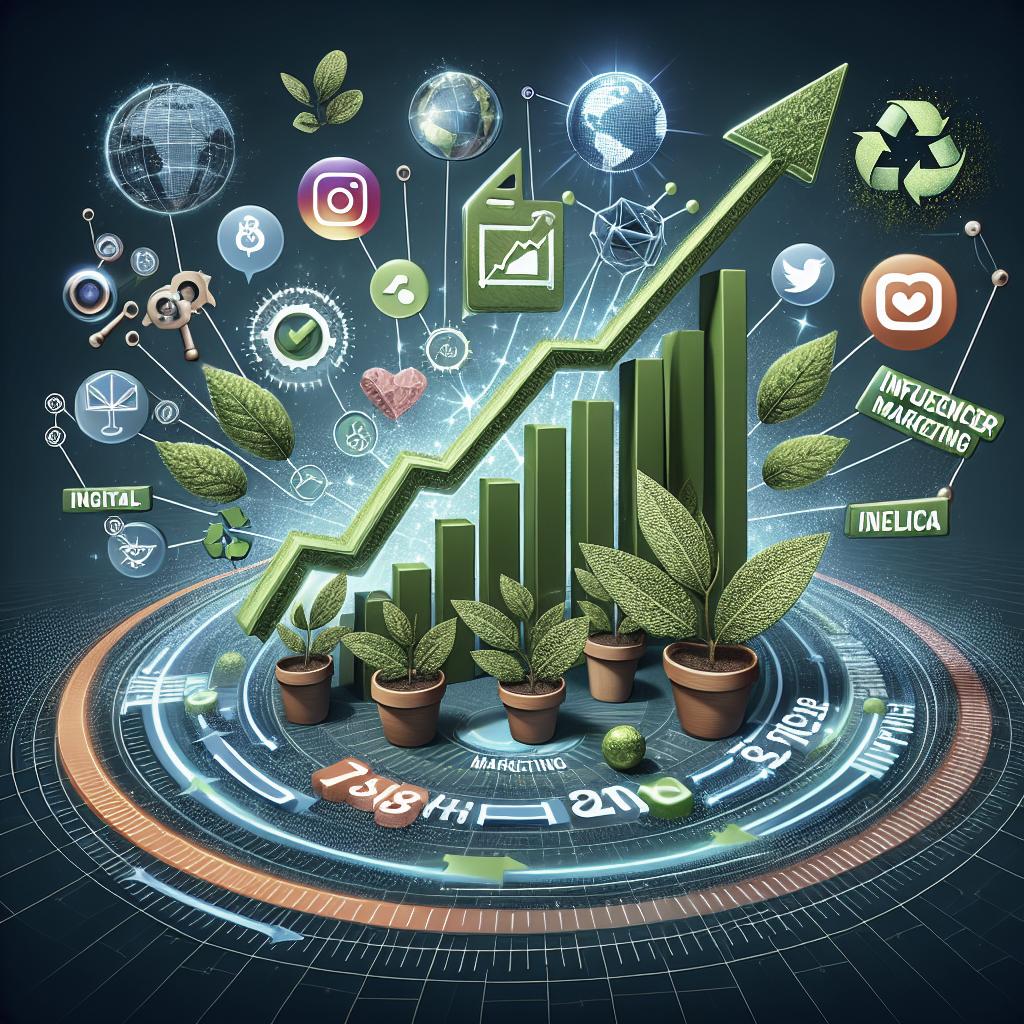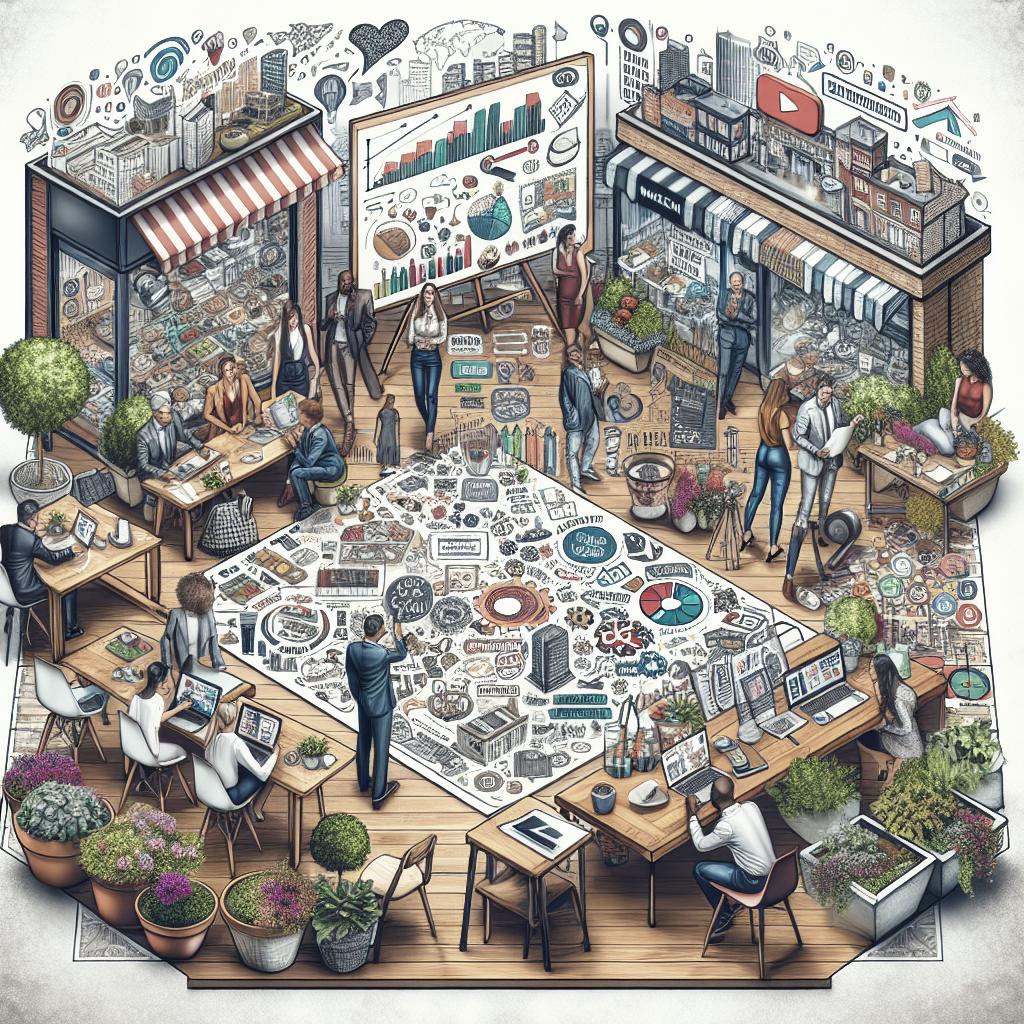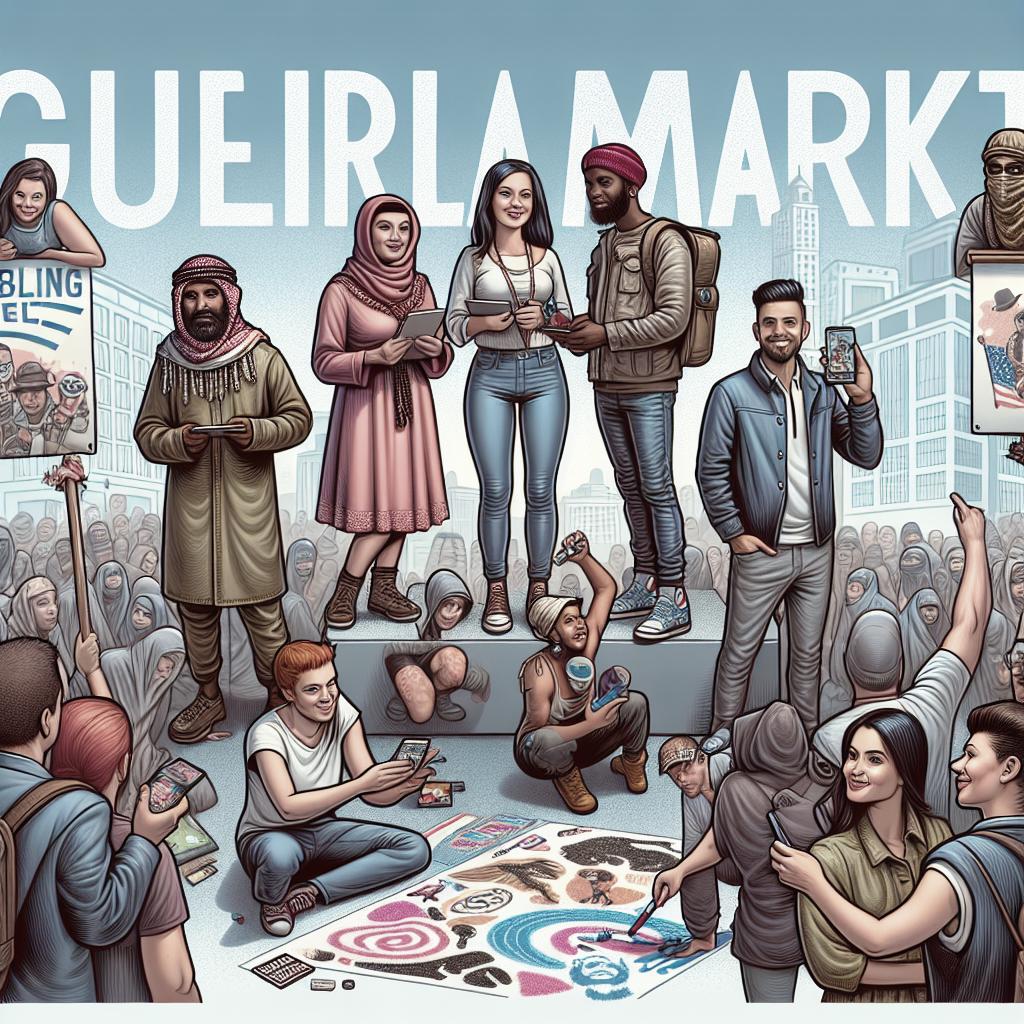<>
Navigating the labyrinth of modern marketing requires a keen eye for the latest trends and technologies. This year’s marketing landscape is teeming with innovations, from AI-driven interactions and personalized experiences to the rising importance of sustainability and the immersive possibilities of AR and VR. Businesses that stay ahead of the curve by embracing these advancements will undoubtedly capture the attention of their target audiences. This blog post explores the top marketing trends shaping the industry today, helping you to refine your strategies and achieve impactful results.
1. Conversational Marketing And AI-Driven Interactions
In today’s fast-paced digital world, conversational marketing has emerged as a vital tool for businesses aiming to engage with their audience on a personal level. AI-driven interactions, such as chatbots and virtual assistants, are revolutionary in delivering instant responses and solutions to customers’ queries. These technologies enhance the customer experience by offering efficient, real-time support while simultaneously collecting valuable data for a more tailored approach. AI-driven chatbots can handle a multitude of tasks, from answering frequently asked questions to providing product recommendations based on user behavior. Their ability to simulate human conversations ensures that customer interactions are seamless and engaging. The data gathered from these interactions can be used to refine marketing strategies further, making AI an indispensable asset for businesses looking to stay competitive.
2. Virtual Reality And Augmented Reality Integration
Virtual Reality (VR) and Augmented Reality (AR) are no longer just buzzwords; they are becoming integral components of innovative marketing strategies. These immersive technologies have the potential to transform how consumers interact with products and services. Brands are harnessing VR and AR to create memorable experiences that drive engagement and foster deeper connections with their audience. AR, for instance, allows customers to virtually try on clothes or visualize how furniture would look in their homes, making online shopping more interactive and reducing the guesswork involved in purchasing decisions. On the other hand, VR can offer virtual tours of real estate properties or immersive training experiences in the corporate sector. By leveraging these technologies, businesses can provide unique, immersive experiences that set them apart from competitors.
3. Sustainability And Ethical Marketing
As environmental concerns continue to rise, consumers are becoming increasingly conscientious about the brands they support. Sustainability and ethical marketing are therefore gaining prominence, with businesses striving to align their values with those of their environmentally conscious customers. Transparent practices, eco-friendly products, and corporate social responsibility initiatives are no longer optional; they are now critical to a brand’s reputation and customer loyalty. Ethical marketing involves not just promoting green products but also ensuring that the entire supply chain adheres to sustainable practices. By committing to reducing carbon footprints and championing social causes, brands can build trust and loyalty among their consumer base. Furthermore, marketing these initiatives effectively can differentiate a brand in a crowded marketplace, making sustainability a powerful tool for attracting and retaining customers.
4. Hyper-Personalization Through Big Data And Analytics
In the age of information, consumers expect personalized experiences that cater to their unique preferences and needs. Hyper-personalization, fueled by big data and advanced analytics, allows brands to deliver bespoke content and recommendations based on individual behavior and preferences. By analyzing vast amounts of data, businesses can gain deep insights into customer behavior, enabling them to craft highly targeted marketing campaigns. For example, e-commerce platforms can use purchase history and browsing behavior to recommend products that a customer is likely to be interested in, thereby increasing conversion rates. Similarly, personalized email campaigns can address customers by their names and offer tailored suggestions, making the communication more relevant and engaging. The power of hyper-personalization lies in its ability to make customers feel understood and valued, thereby fostering loyalty and encouraging repeat business.
5. Video Marketing And Short-Form Content Dominance
Video marketing is becoming increasingly indispensable as consumers gravitate towards visually engaging content. The rise of platforms like TikTok and Instagram Reels has popularized short-form content, which captures the audience’s attention quickly and effectively. With the average attention span dwindling, marketers must create compelling videos that deliver messages succinctly and powerfully. Short-form videos, typically under one minute, are perfect for capturing the essence of a brand, introducing new products, or providing quick tutorials. These videos can be easily shared across social media platforms, amplifying their reach and impact. Long-form videos, such as webinars or product demos, can also be valuable, but the key is to maintain a balance and keep the audience engaged. The visual and dynamic nature of video content makes it a versatile and powerful tool in any marketing arsenal.
Lessons Learned
Understanding and leveraging the latest marketing trends can give businesses a significant competitive edge. Here’s a summary of the current top trends in an easily digestible format:
| Trend | Description |
|---|---|
| Conversational Marketing And AI-Driven Interactions | Utilizing AI-driven tools like chatbots for real-time customer engagement and data collection. |
| Virtual Reality And Augmented Reality Integration | Creating immersive, interactive experiences to enhance consumer interaction with products and services. |
| Sustainability And Ethical Marketing | Promoting eco-friendly practices and aligning brand values with those of environmentally conscious consumers. |
| Hyper-Personalization Through Big Data And Analytics | Leveraging big data to deliver personalized experiences and tailored marketing campaigns. |
| Video Marketing And Short-Form Content Dominance | Engaging audiences with visually appealing and concise video content on social media platforms. |
More From Forbes
* Top 10 Marketing Strategies For Small Businesses * How To Leverage Influencer Marketing In 2023 * The Impact Of AI On The Future Of Digital Marketing Staying informed about these trends and incorporating them into your marketing strategy will help your business thrive in the ever-evolving digital landscape.


